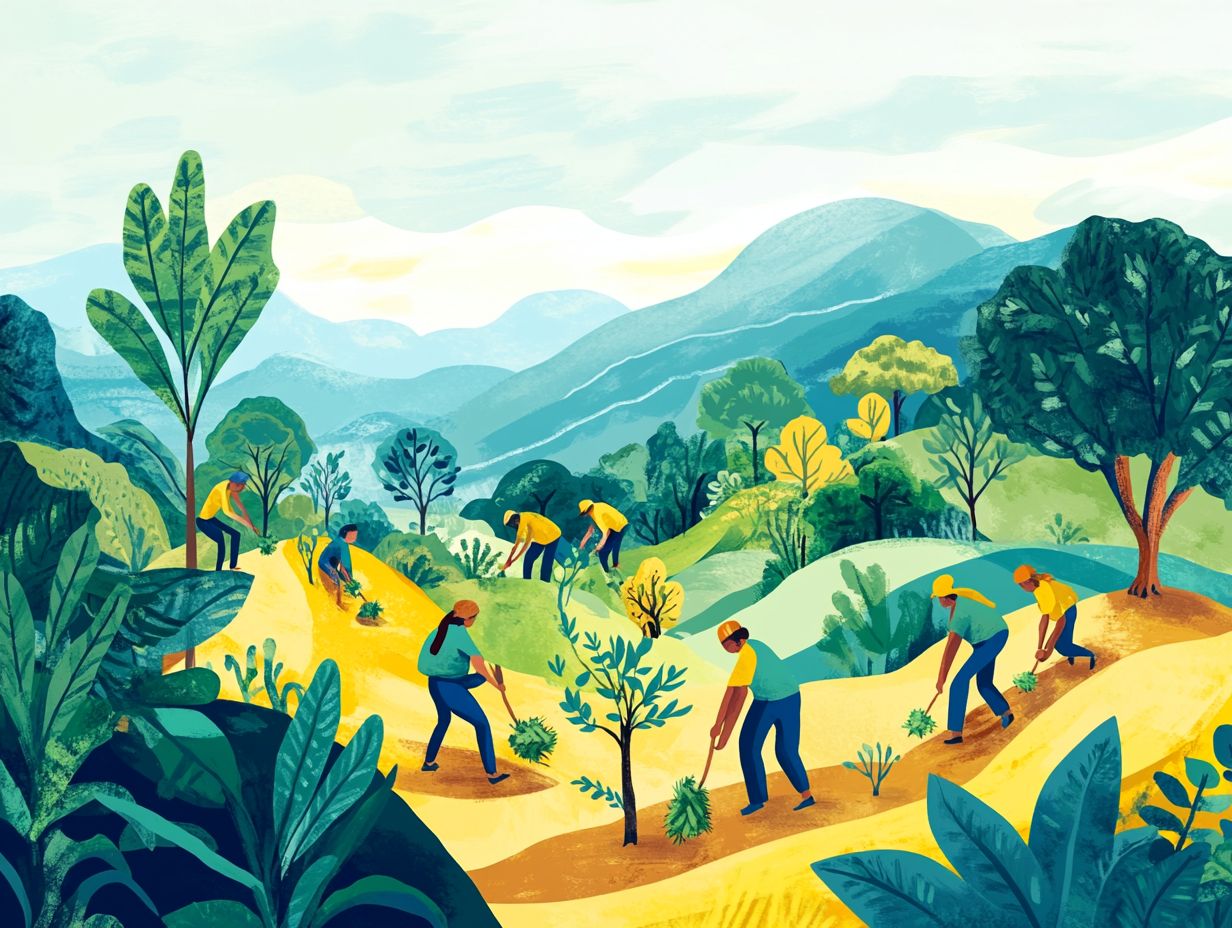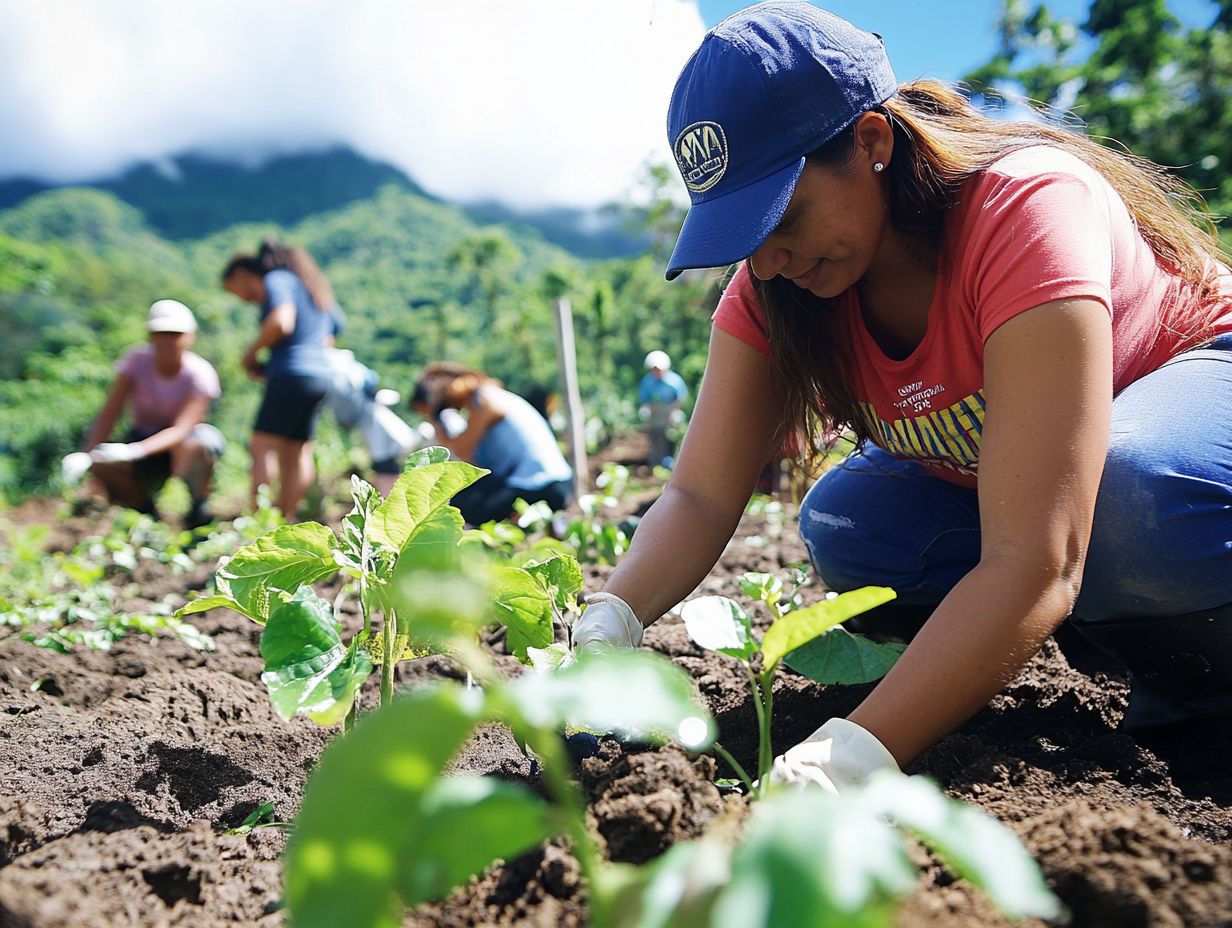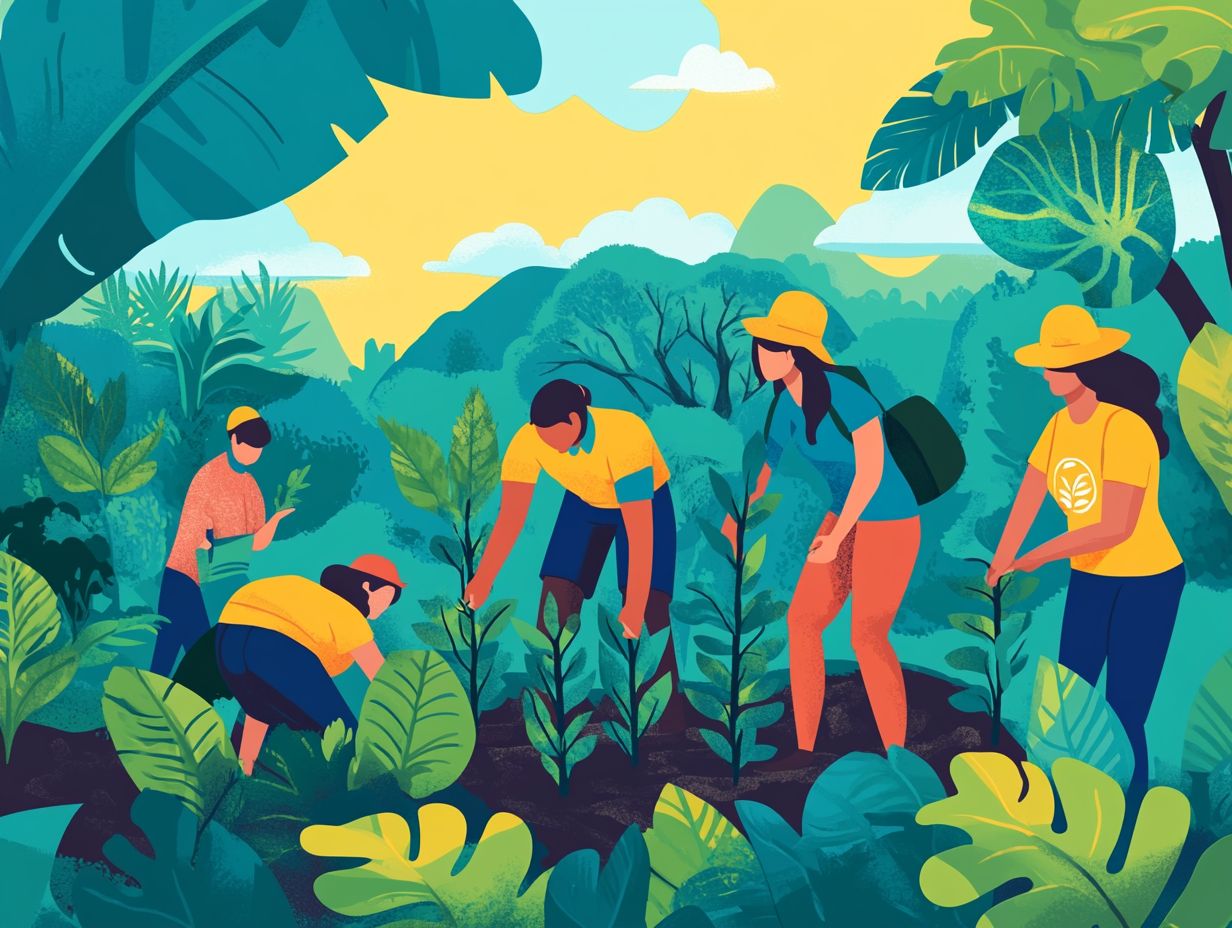What Are the Benefits of Responsible Travel?
Traveling presents you with remarkable experiences. However, it also brings a responsibility that you must embrace. Understanding responsible travel means acknowledging the impact your journeys have on the planet and the communities you engage with.
This exploration delves into the definition and principles of responsible travel, shedding light on its environmental, social, and economic advantages. By reducing your carbon footprint and supporting local cultures and economies, you can make a significant difference. Get ready to explore exciting tips on how to become a responsible traveler and uncover the positive transformations that mindful travel can inspire!
Contents
- Key Takeaways:
- What is Responsible Travel?
- Environmental Benefits of Responsible Travel
- Social Benefits of Responsible Travel
- Economic Benefits of Responsible Travel
- How to Be a Responsible Traveler
- Frequently Asked Questions
- What Are the Benefits of Responsible Travel, Including Economic Benefits?
- How does responsible travel benefit the environment?
- What are the social benefits of responsible travel?
- Why is responsible travel important for preserving cultures?
- How does responsible travel and eco-friendly travel benefit the economy?
- What are the personal benefits of responsible travel?
- How can I become a responsible traveler?
Key Takeaways:

- Responsible travel benefits the environment by reducing our carbon footprint and impact on ecosystems, including pollution reduction efforts.
- It also has social benefits such as supporting local economies and preserving cultures.
- Responsible travel boosts sustainable development and creates job opportunities in communities.
What is Responsible Travel?
Responsible travel stands as a cornerstone of sustainable tourism, placing the well-being of local communities at the forefront. It emphasizes the importance of preserving cultural heritage and protecting natural environments.
When you embrace environmentally friendly travel methods, you not only minimize your environmental impact but also contribute to the economic vitality of the destinations you explore. By aligning with principles established by organizations like the UNWTO and practicing cultural sensitivity, you have the power to create positive ripple effects promoting the conservation of endangered species and the rich traditions of the local cultures you encounter. To learn more about how to travel responsibly, check out what are the key principles of responsible travel?
Definition and Principles
The essence of responsible travel lies in your commitment to sustainable tourism practices that honor both the environment and local cultures. This approach invites you to adopt eco-friendly habits, such as minimizing waste, supporting local businesses, and selecting accommodations that prioritize sustainability.
For instance, you’re encouraged to partake in activities like wildlife conservation efforts or community-led tours that celebrate cultural heritage rather than exploit it. A noteworthy example is the work of organizations like the Global Sustainable Tourism Council, which partners with various regions to establish guidelines that promote responsible travel.
By engaging in such initiatives, you not only contribute to the preservation of natural resources but also enrich your travel experiences through authentic interactions with local communities. Exploring the benefits of traveling off the beaten path can enhance these connections even further.
Environmental Benefits of Responsible Travel
The environmental benefits of responsible travel are truly remarkable, playing a vital role in reducing pollution and preserving the world’s unique ecosystems. By choosing to travel thoughtfully, you contribute to a more sustainable future, ensuring that these natural wonders remain for generations to come.
Reducing Carbon Footprint and Impact on Ecosystems

Reducing your carbon footprint is a crucial part of responsible travel, directly impacting the health of ecosystems and the survival of marine life. By choosing eco-friendly transportation options like trains or electric buses, you can significantly minimize your environmental impact. Participating in local conservation activities not only helps protect biodiversity but also enriches your travel experience.
Statistics reveal that the tourism sector contributes about 8% of global carbon emissions, highlighting the urgent need for change. Countries like Costa Rica have successfully rolled out pollution reduction initiatives, including reforestation programs and sustainable tourism practices. These examples showcase effective strategies that you can adopt in your own travels.
Taking these steps not only benefits the planet but also paves the way for a more sustainable future in travel, ensuring healthier landscapes. Join the movement for responsible travel and make a difference today!
Social Benefits of Responsible Travel
The social benefits of responsible travel extend beyond just economic gains. By thoughtfully engaging with local communities, you foster a deeper connection that enriches both your experience and theirs. This also promotes cultural sensitivity and understanding.
Supporting Local Economies and Cultures
Supporting local economies through responsible travel not only feels good; it creates a meaningful impact on communities. This preserves their cultural heritage and traditional practices.
When you opt for boutique hotels that showcase local architecture and employ native staff, you make a direct contribution to the economy. Shopping at local markets guarantees fair wages for artisans and keeps traditional crafts alive, showcasing unique cultural expressions that make each destination special.
Investing in cash crops like organic coffee or spices supports sustainable farming practices, nurturing an environment where communities can thrive without sacrificing their heritage. Your conscious choices can supercharge local economies and celebrate their vibrant cultures!
Economic Benefits of Responsible Travel
The economic advantages of responsible travel are substantial. They offer crucial support for long-term growth that s good for people and the planet and foster job creation within the tourism sector.
Embracing this approach enriches your travel experience while contributing to the well-being of local communities and the environment.
Boosting Sustainable Development and Job Creation

Boosting sustainable development through responsible travel can lead to significant job creation and economic benefits for local communities.
By prioritizing practices that honor local cultures and ecosystems, you promote environmental conservation and stimulate employment across various sectors. The hospitality industry witnesses a surge in demand for locally sourced services, resulting in more job opportunities for residents. Additionally, embracing slow travel can enhance your experience and benefit local communities.
Take eco-tourism as an example; data shows that for every job created in this niche, up to two additional positions can emerge in supporting services, such as guides and artisans. Consider case studies from countries like Costa Rica and Thailand, which illustrate this relationship beautifully. Regions that embrace responsible tourism often report a 30% increase in employment and a boost in local GDP, highlighting the undeniable benefits of this approach, including the role of responsible travel in climate change.
How to Be a Responsible Traveler
As a responsible traveler, you engage in mindful choices that promote eco-friendly practices and enhance the well-being of both yourself and the local communities you visit.
Tips and Guidelines for Responsible Travel
Practical tips for responsible travel play a pivotal role in fostering eco-friendly practices and reducing pollution in destinations around the globe.
Incorporating simple yet impactful habits into your journey can significantly minimize waste think reusable water bottles and eco-friendly toiletries.
Supporting local traditions through authentic experiences, such as immersing yourself in local workshops or exploring vibrant markets, enriches your adventure and strengthens the community s economy.
Opting for sustainable practices like using public transportation or biking instead of renting vehicles further reduces your environmental footprint. These responsible choices enhance your travel experience and promote long-term health benefits, contributing to cleaner air and thriving ecosystems that benefit both you and local residents. To learn more about why these choices matter, check out why choose sustainable travel destinations?
Frequently Asked Questions
What Are the Benefits of Responsible Travel, Including Economic Benefits?

Responsible travel refers to being mindful and conscious of the impact of our travels on the environment, local communities, and cultures. Here are some of its benefits:
How does responsible travel benefit the environment?
Responsible travel minimizes tourism’s negative effects on the environment. By adopting eco-friendly habits like reducing waste and conserving water and energy, we can protect the beauty and resources of our destinations.
Responsible travel boosts local communities by creating economic opportunities and fostering cultural exchange. Supporting local businesses and participating in community activities enhances the well-being of the people we visit.
Why is responsible travel important for preserving cultures?
This type of travel encourages respect for cultural traditions. It helps prevent these cultures from being diluted by tourism.
By supporting local artisans, we can promote and sustain traditional practices in the areas we visit.
How does responsible travel and eco-friendly travel benefit the economy?
Responsible travel positively impacts local economies. It creates job opportunities and generates income for small businesses.
When we support local products and services, we contribute to the economic development of these communities.
What are the personal benefits of responsible travel?
Beyond environmental, social, and economic advantages, responsible travel enriches travelers personally. It broadens perspectives, fosters growth, and creates unforgettable memories.
How can I become a responsible traveler?
You can become a responsible traveler by choosing eco-friendly accommodations and supporting local businesses. Be mindful of your actions and their impact on the community.
Researching the culture and customs of your destination is crucial. Respecting local traditions will enhance your experience.
Support organizations like the UNWTO that promote responsible travel practices.






